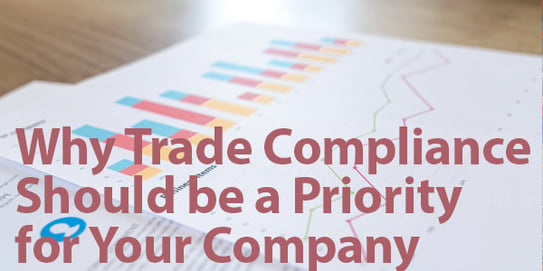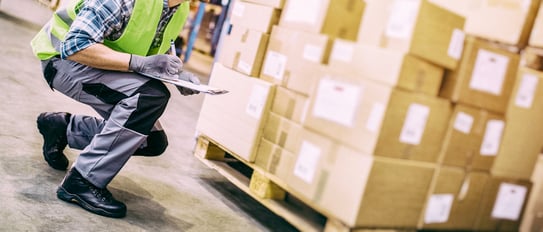
US businesses that actively source raw materials, components, or finished goods from other countries must understand—and adhere to—the trade regulations for every country involved in their supply chain. Failure to do so can lead to fines and severe penalties.
Your company can minimize compliance risks by paying attention to the details of your import process, just like you can be sure Customs and Border Protection is doing the same. Customs has established Centers for Excellence and Expertise (CEEs) to examine imports more closely. These CEEs specialize in trade compliance evaluations for specific industries, for everything from agricultural imports to consumer goods.
CEE Customs agents know their assigned industries well. Their knowledge enables them to readily spot irregularities in declaration paperwork, product classifications, and country of origin. However, many companies still underestimate the importance of getting their compliance house in order. Often, compliance doesn’t make the top-ten list of company priorities.
Ignoring compliance risks is akin to playing with matches, as importers may eventually get burned. Whether randomly or through sophisticated targeting methods, Customs could detain a shipment, issue a CF-28 Request for Information, conduct a full-scale audit, or assess fines or penalties.

Start the Process Early
Trade compliance should be one of the earliest considerations in New Product Development (NPD). It’s essential to review trade regulations as they apply to the product before proceeding to the next level of development. Companies should answer the following questions before moving NPD forward:
- Are we allowed to import this product to the United States?
- Is there a quota or other restrictions on these imports?
- Is the product subject to antidumping or countervailing duties?
- What is the general duty rate for this product?
- Is this country eligible for GSP (generalized system of preferences)?
- Is the product subject to Section 232 or 301 tariffs?
- What is the Harmonized Tariff Schedule classification for this good?
- Is the product subject to other government agency requirements?
It may be a good idea to hire a Customs broker to navigate any concerns during NPD. A Customs broker will consider every conceivable impediment to entry and will estimate duty rates upfront. Being aware of all possible eventualities helps importers accurately calculate landed costs and profit margins.
For example, let’s say a product has a tight margin of say, 5%. The Customs broker finds the product has a 9% duty rate. A rate versus margin such as this means the more products an importer sells and ships, the more money it could lose.
Related Topic: How CTPAT Will Advance Your Trade Compliance
What to Consider Before Moving Supply Chains
Several companies are moving their supply chains from one country to another to avoid tariffs. If Section 301 tariffs apply to a product imported from China, a firm may shift production to Vietnam or Bangladesh to avoid paying them.
Companies are also changing where they assemble products to avoid duties. For instance, a company may source parts from China and assemble them in Mexico to bring finished products into the US duty-free.
They may learn—often after the fact—that assembling a product in Mexico does not always guarantee Customs will consider it as a product made in Mexico. The determination depends on the product’s origin rules. For some products, raw materials and components must be substantially transformed in the other country; for others, there may be regional value content requirements. In some cases, both rules play a part.
Customs can assess applicable section 301 duties and potentially accuse an importer of gross negligence and outright fraud for inconsistent paperwork, incorrect classifications, and false country of origin statements. The penalties for negligence and fraud can run into the thousands—or even millions of dollars—and can lead to jail time for egregious violations.
A Customs broker will examine the entire operation, starting where the goods are originally produced, and continuing through product assembly steps to determine applicable duties and country of origin. A Customs broker also can help determine if goods qualify for GSP. Most GSP countries have a minimum regional value content rule, generally, at least 35% of the good’s value must be derived from the GSP country to claim duty-free treatment.
Checklist for Compliance
Whether performed by your customs broker or internally, the following steps are key to demonstrating due diligence and reasonable care:
- Classify the product first. If a company is importing a steel bar, for example, the first step is to classify it. Review the product spec sheet, understand exactly what the product is, know its composition and how it will be used, then classify it correctly, i.e., assign the proper Harmonized Tariff Schedule number.
- Check on the general duty rate and potential for special tariffs. There are tools to help identify red flags for anti-dumping or countervailing duties, 301 Tariffs, 232 Tariffs, etc. The steel bar, in this example, might be a raw form of steel subject to section 232 duties. Depending on where it is from, it also could be subject to section 301 duties.
- Check for other partnering government agencies (PGAs) requirements. For example, depending on the use of steel, it may be subject to FDA requirements.
- Check the CBP CROSS Rulings database. CBP publishes binding rulings for specific products in this repository. Are there similar binding rulings that would apply to the steel bar in our example?
Importers can then run their findings by their Customs broker as double-check.
The cyclical headwinds of rapidly changing, complex trade regulations make navigating the seas of trade compliance more critical than ever. Companies that exercise due diligence and tap into the resources offered by a professional Customs broker can ward off potential compliance issues and trust that their imports adhere to the US trade regulations. A good first step in getting compliance in order is to include compliance on your company’s priority list!




